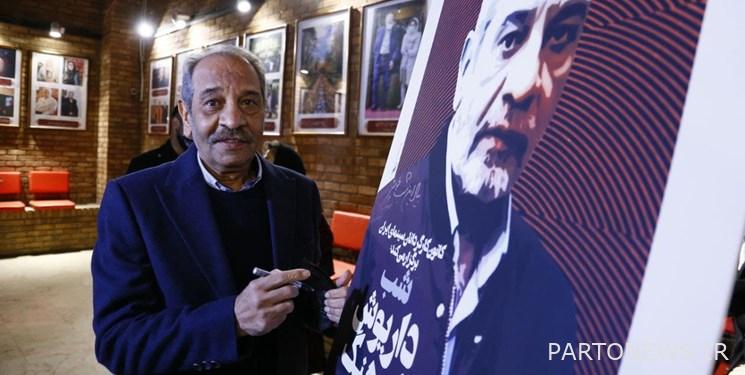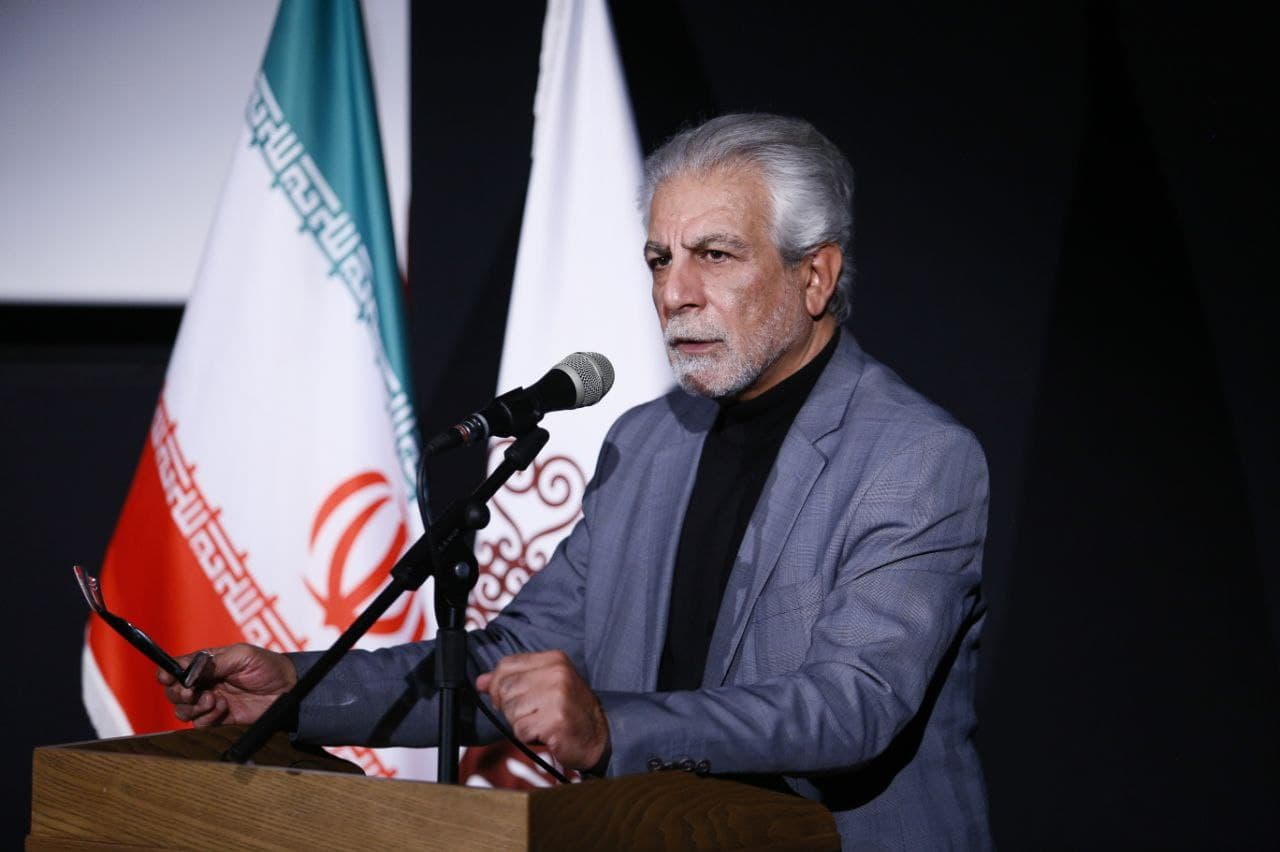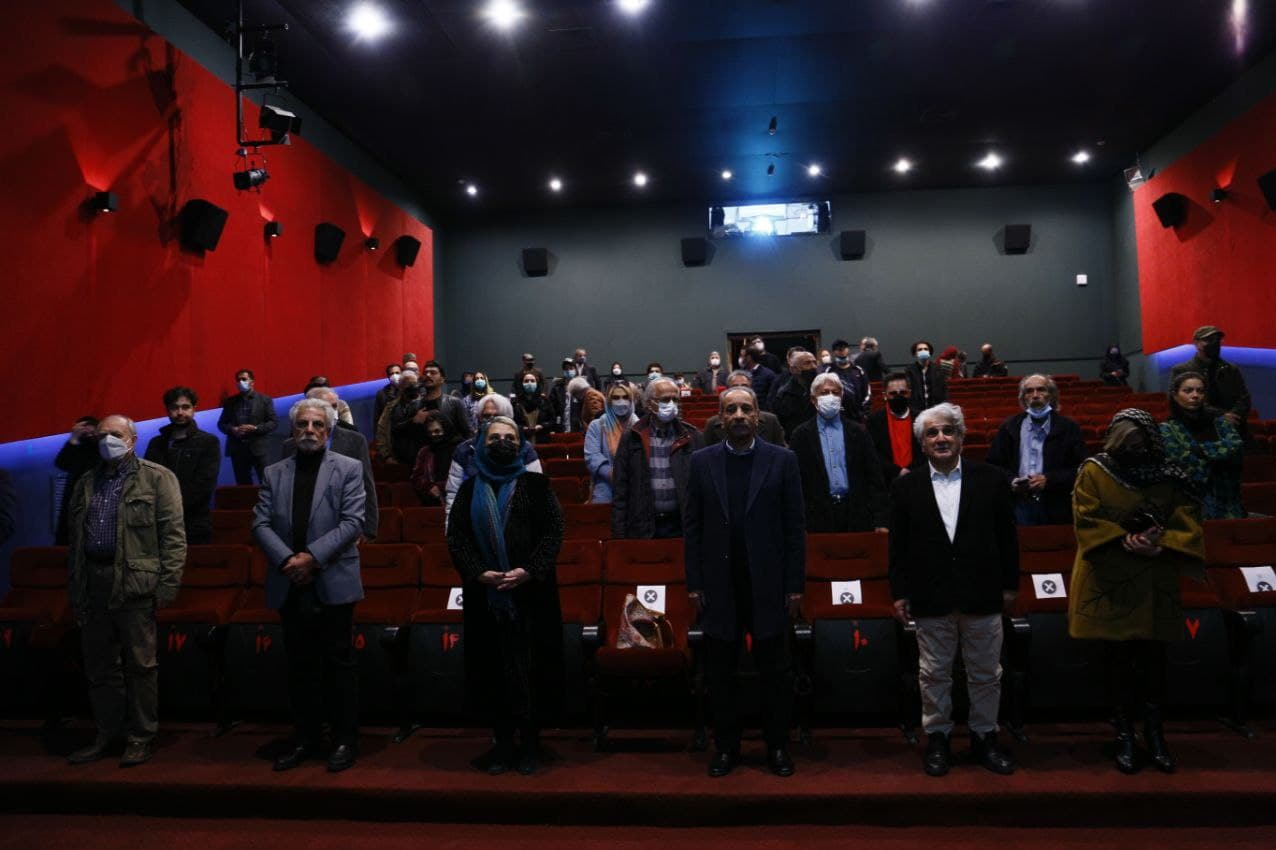Why Dariush Farhang does not have the opportunity to make films / direct with a rough but heartfelt face

According to Fars News Agency, citing the public relations of the Iranian Cinema Directors Association, “Dariush Farhang Night” was organized by the Iranian Cinema Directors Association last night (Wednesday, December 24) in the Cinematograph Hall of the Cinema Museum and was performed by Mansour Zabetian.
In a part of this ceremony, Manouchehr Shahsavari, the managing director of the cinema house, said: “My relationship with Dariush is based on friendship and camaraderie, which belongs to us even if it is marginalized.” I’m always worried about him. Of course, in our literature, concern has a negative origin, but I do not speak from this perspective.
Shahsavari, stating that this worry is due to love and friendship, otherwise without love and friendship and knowledge, worry is meaningless, clarified: If we are worried about the homeland, it is because we love it. The whole world has gone through difficult times, partly because of the corona and partly for other reasons, but I think we have to accept the world as it is so that we can change it.

He added: “One of the most documented historical catastrophic centuries is the 19th century, which is the century of slavery and so on.” But in the same century, we have people like Nietzsche who leave the world in a sense, and Brady, a composer who still enjoys his music. In the twentieth century, we have World War I and strange diseases, but at the same time we enjoy cinema, music and painting. We have had some eventful days in the last hundred years, and artists have played a strange role during this time. From Dehkhoda and Bahar to Kimiaei and Samandarian, etc., we see the names that we review in our minds from the past to the present. Our artists have interpreted the world full of suffering and torment.
“The past is important and the past should not be taken away from us with ideological scissors,” said the director of the Cinema House, saying that talking about celebrations would not go anywhere if it was not forward-looking and retrospective. Artists and thinkers played a major role during these years. We all have roles in this life scene that we have a responsibility to play in the best way possible. Let’s look to the past and build the future. Making the future by artists, filmmakers, etc. is a reminder to us of another aspect of life, and Dariush Farhang is one of these artists, and I thank the Directors’ Association for holding this event.
Keramati: Why Dariush Farhang does not have the opportunity to make films
Actor and film director Masoud Keramati, while regretting that some artists, including Dariush Farhang, did not make films, said at the meeting: “Why does Farhang, like many old friends, not have the opportunity to make films, and why should he spend 12 or 10 years and not be able to direct?” Although he has appeared in many films as an actor, he is still a director for me. Of course, I do not want to complain about cinema and the conditions of society here.
Expressing his past memories, he said: “I had a love for Persian films when I was a teenager, but I entered the theater thanks to my brother, and in the same atmosphere, one of the people who led me to study theater was Dariush Farhang and Mehdi Hashemi.” The Student Theater Group of the University of Tehran, called the Pedestrian Group, was the most successful artistic group in the history of Iran. My dream was to be in this congregation.
He added: “After the Cultural Revolution and the changes that took place, Dariush Farhang made the series Sultan and the Shepherd, which was one of the best.”
He added: “The image I saw of Dariush Farhang in the circles seemed serious and scary until I approached him in the series Innocents.” The first day of filming came with fear and trembling, and for months the best memories of my life were formed. Dariush Farhang is an innocent seven- or eight-year-old child.
Attila Pessani: “Talisman” is my first love and culture
In the continuation of this ceremony, a video message from Attila Pesyani was shown, in part of which, referring to the beginning of his collaboration with Dariush Farhang, he said: In 1964, I played the first serious film called Talisman for Culture, which was our first love. I worked on four films with Dariush Farhang and I hope to play four more films for him.
Omid Rouhani: Culture was smart and happy in acting
Omid Rouhani, actor and cinema critic, said about culture: “Like many, I believe that ‘Talisman’ is an undiscovered film, but I have one last experience. I had the good fortune to play with Dariush Farhang in a theater three years before Corona. He was three months old and practiced every day without interruption with a grim face. At the end of the performance, a young man was happy and smiling, as if he had been given the world.
He added: “If the pleasure of a game is so great, you should see what happens to Dariush Farhang while directing.” I hope to see him once while directing the film.
Mehdi Hashemi: The persistence of my friendship with culture is due to the work of the theater
Mehdi Hashemi also said at the ceremony that he is a lifelong friend of Dariush Farhang: “He is an emotional man who sheds tears even when watching art films.” We worked in theater for ten years and gradually came to the conclusion that I should play and he should write and direct. Dariush is a very good director.
Emphasizing that the courage of his culture was with him, he said: I always thank him for his friendship. A friend whose longevity is due to the work of the theater. Acting in Dariush’s films was also fun, and the same acting in other directors’ films made it difficult for me. I am glad that he was and is my director. He is my friend and friendship like him is rare.
Dariush Farhang: I am not happy, because my compatriot is not happy
At the end of the program, Dariush Farhang praised the speakers and said: I have not been happy for some time. I am not calm and in a word I am not happy because my compatriot is not happy. I wanted to talk more about these issues, but it is late in the meeting and I have to express my happiness thanks to the directors’ association, the guests, the cinema museum and the cinema.
He added: “Despite these crises and the forgotten smiles of the people, I can not be happy. I hope that the corona will be eradicated as soon as possible and that businesses will prosper and that the dim eyes will shine again.

At the end of the ceremony, in the presence of the members of the Central Council of the Iranian Cinema Directors Association, including Mohsen Amiryousefi, Mostafa Kiai, Qudratullah Solh Mirzaei, Vahid Mosaian, Mohammad Reza Arab, Mehrdad Khoshbakht and Ahmad Amini, Dariush Farhang was honored with a plaque and an award.
Also, the commendation plaque of the Cinema Museum was presented to this director and actor by Mehdi Hashemi in the presence of Mehran Abbasi, the director of this museum.
Mohammad Ali Najafi, Gholamreza Mousavi, Ebrahim Vahidzadeh, Shahram Asadi, Massoud Navabi, Laden Taheri, Mohammad Movafaq, Azizullah Haji Mashhadi, Ardeshir Shalileh, Bijan Mirbagheri, Akbar Hor, etc. were among the guests present at the ceremony.
The night of “Dariush Farhang” was held under the auspices of Vahid Mosaian and the screening of the movie “Talisman” was the end of the ceremony.
End of message /
You can edit this post
Suggest this for the front page
.

